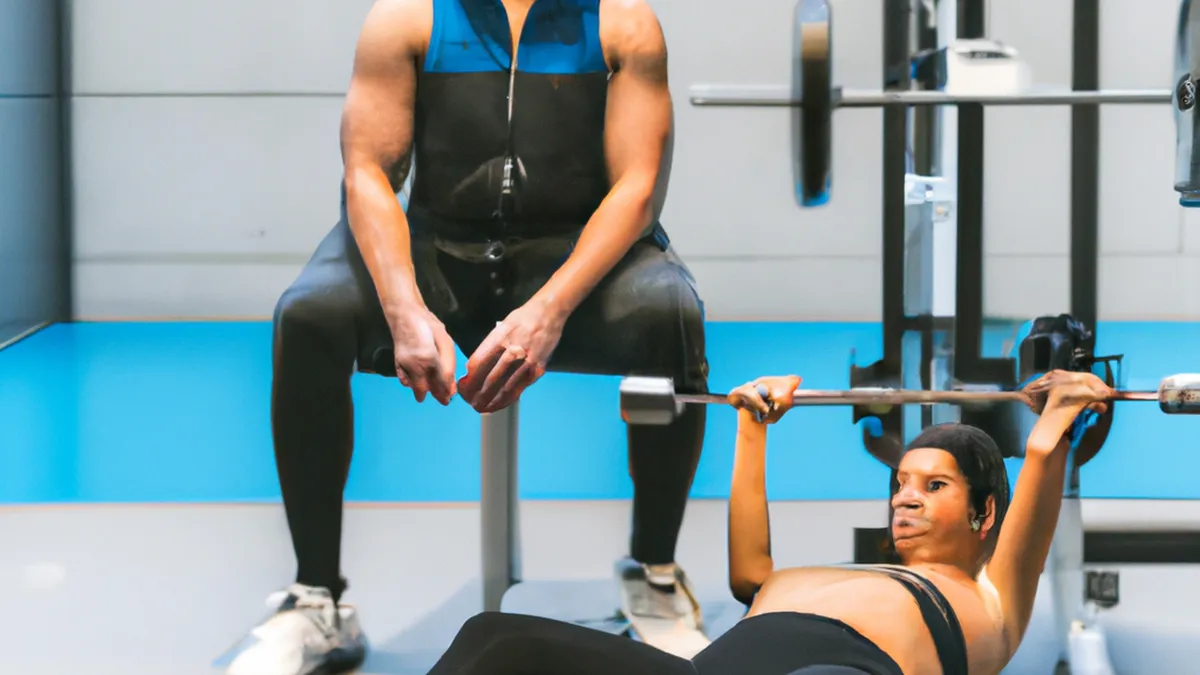Dream Big: The Athlete’s Sleep Guide
Sleep’s Role in Recovery for AthletesAthletes push their bodies to the limit. They train hard, compete fiercely, and strive for peak performance. Many overlook a critical component of recovery: sleep. Quality sleep significantly impacts performance, recovery, and well-being. Understanding this helps athletes enhance their training and achieve goals.
The Importance of Sleep for Recovery
Sleep plays a vital role in muscle recovery. During deep sleep, the body repairs tissues and synthesizes proteins. This process helps athletes recover from intense workouts and reduces injury risk. Sleep also replenishes energy stores. The body restores glycogen, the primary fuel for muscles, during sleep. Thus, athletes need sufficient sleep to perform at their best.
Sleep and Hormonal Regulation
Sleep influences several hormones essential for recovery. Growth hormone peaks during deep sleep and aids in muscle growth. Additionally, sleep affects cortisol, the stress hormone. High cortisol levels can hinder recovery and increase injury risk. Therefore, athletes must prioritize adequate sleep for optimal hormonal balance.
Mental Recovery Through Sleep
Athletes face mental challenges alongside physical ones. Sleep improves cognition, focus, and decision-making. During sleep, the brain processes information and consolidates memories. This process enhances learning and skill retention, crucial for athletes. Improved mental clarity directly translates to better performance on the field or court.
Tips for Better Sleep
As an Amazon Associate I earn from qualifying purchases.
Gear tip: consider cooling pillow, sleep mask, and white noise machine to support this topic.
Athletes should adopt good sleep hygiene to reap the benefits of sleep. Here are some effective tips:1. **Establish a Routine**: Go to bed and wake up at the same time each day to reinforce the sleep-wake cycle.2. **Create a Sleep-Friendly Environment**: Ensure the bedroom is cool, dark, and quiet. Use blackout curtains and earplugs if needed.3. **Limit Screen Time Before Bed**: Blue light can interfere with melatonin production. Turn off devices at least an hour before sleep.4. **Practice Relaxation Techniques**: Engage in calming activities before bed, such as reading, meditating, or taking a warm bath.5. **Monitor Caffeine and Alcohol Intake**: Limit consumption of both substances, especially before bedtime, as they can disrupt sleep patterns.
Prioritize Recovery Strategies
Incorporating recovery strategies into an athlete’s routine is essential. Along with sleep, consider these practices:
Nutrition Matters
Food choices impact recovery significantly. A balanced diet rich in protein, healthy fats, and complex carbohydrates supports muscle repair. Hydration is crucial, as dehydration can lead to fatigue. Athletes should stay well-hydrated throughout the day.
Active Recovery Techniques
Engaging in active recovery enhances the benefits of sleep. Light workouts, stretching, or yoga promote blood flow and reduce muscle soreness. Incorporating these activities into rest days maintains fitness and accelerates recovery.
Mindfulness and Mental Health
Mental well-being is as important as physical health. Stress management techniques, such as mindfulness or meditation, improve sleep quality. Athletes should address mental health to support overall recovery. This approach cultivates a balanced training regimen.
The Benefits of Quality Sleep
Prioritizing quality sleep offers numerous advantages for athletes. Here are key benefits:1. **Enhanced Performance**: Adequate sleep improves strength, speed, and endurance. Athletes who sleep well often outperform peers.2. **Faster Recovery**: Quality sleep accelerates healing. Athletes experience less soreness and fatigue after restful nights.3. **Reduced Injury Risk**: Well-rested athletes remain alert and focused. This heightened awareness prevents accidents and injuries during training.4. **Improved Mood and Motivation**: Sleep affects emotional health. Athletes who sleep well tend to feel more motivated and positive.5. **Better Immune Function**: Quality sleep strengthens the immune system. This protection is crucial for athletes during intense training.
Conclusion
Sleep is essential for recovery in athletes. It plays a vital role in physical healing, mental clarity, and performance. By prioritizing sleep, athletes can unlock their full potential. Incorporating good sleep hygiene, balanced nutrition, and active recovery techniques yields significant benefits. Better sleep leads to better performance. Make sleep a priority in your training regimen and watch your performance soar.
Below are related products based on this post:
FAQ
Why is sleep important for athletes?
Sleep is crucial for athletes as it plays a vital role in muscle recovery, energy replenishment, and hormonal regulation. During deep sleep, the body repairs tissues and synthesizes proteins, reducing injury risk and enhancing performance. Adequate sleep ensures athletes can train effectively and achieve their goals.
How does sleep affect mental performance in athletes?
Sleep significantly impacts mental performance by improving cognition, focus, and decision-making. While sleeping, the brain processes information and consolidates memories, which enhances learning and skill retention. This mental clarity is essential for athletes to perform at their best during competitions.
What are some tips for improving sleep quality?
To improve sleep quality, athletes should establish a consistent sleep routine, create a sleep-friendly environment, and limit screen time before bed. Additionally, practicing relaxation techniques and monitoring caffeine and alcohol intake can further enhance sleep hygiene. These practices help ensure athletes get the restorative sleep they need for optimal recovery.















Post Comment